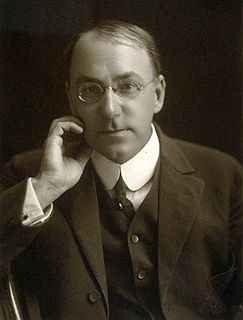A Quote by D. H. Lawrence
That she bear children is not a woman's significance.
But that she bear herself,
that is her supreme and risky fate.
Related Quotes
We do not know what we can bear until we are put to the test. Many a delicate mother, who thought that she could not survive the death of her children, has lived to bury her husband and the last one of a large family, and in addition to all this has seen her home and last dollar swept away; yet she has had the courage to bear it all and to go on as before. When the need comes, there is a power deep within us that answers the call.
If women had power, what would men be but women who can't bear children? And what would women be but men who can?" "Hah!" went Tenar; and presently, with some cunning, she said, "Haven't there been queens? Weren't they women of power?" "A queen's only a she-king," said Ged. She snorted. "I mean, men give her power. They let her use their power. But it isn't hers, is it? It isn't because she's a woman that she's powerful, but despite it.
She emptied herself of Fabio and of herself, of all the useless efforts she had made to get where she was and find nothing there. With detached curiosity she observed the rebirth of her weaknesses, her obsessions. This time she would let them decide, since she hadn't been able to do anything anyway. Against certain parts of yourself you remain powerless, she said to herself, as she regressed pleasurably to the time when she was a girl.
The extraordinary woman depends on the ordinary woman. It is only when we know what were the conditions of the average woman's life - the number of children, whether she had money of her own, if she had a room to herself, whether she had help bringing up her family, if she had servants, whether part of the housework was her task - it is only when we can measure the way of life and experience made possible to the ordinary woman that we can account for the success or failure of the extraordinary woman as a writer.
In domestic life, the woman's value is inherent, unquantifiable; at home she exchanges proven values for mythological ones. She 'wants' to be at home, and because she is a woman, she's allowed to want it. This desire is her mystique, it is both what enables her to domesticate herself and what disempowers her.
In domestic life the woman's value is inherent, unquantifiable; at home she exchanges proven values for mythological ones. She "wants" to be at home, and because she is a woman she's allowed to want it. This desire is her mystique, it is both what enables her to domesticate herself and what disempowers her.
A mother experiences more than one death, even though she herself will only die once. She fears for her husband; she fears for her children; again she fears for the women and children who belong to her children. ... For each of these-whether for loss of possessions, bodily illness, or undesired misfortune-she mourns and grieves no less than those who suffer.
Either I'm alive or I'm dying, she said to Daniel. Please don't feel you can't tell me. Which is it?
Which does it feel like? said Daniel. He patted her hand. You're not dead yet. You're a lot more alive than many people.
This isn't good enough for Rennie. She wants something definite, the real truth, one way or the other. Then she will know what she should do next. It's this suspension, hanging in a void, this half-life she can't bear. She can't bear not knowing. She doesn't want to know.
The woman is the man's glory, and she naturally delights in the praises which are assurances that she is fulfilling her function; and she gives herself to him who succeeds in convincing her that she, of all others, is best able to discharge it for him. A woman without this kind of "vanity" is a monster.





































